Stevie (1978)
“I was much too far out all my life / And not waving, but drowning.”
|
Synopsis: |
|
Genres, Themes, Actors, and Directors:
Response to Peary’s Review: She utilizes a series of self-conscious vocal modulations and subtle facial gestures (such as nose sniffs and tongue-against-teeth movements) to portray Stevie’s unique mixture of humility, melancholy, and quietly adventurous spirit — and while she talks far too much, her performance never falters. Unfortunately, not every aspect of the film works: the flashbacks to Stevie’s childhood seem out of place; the script is far too stagy; and the strange role of Smith’s friend “The Man” (played by Trevor Howard) should have been cut altogether. Monologic plays ultimately work better on the small screen — I was reminded, for instance, of Eileen Atkins one-woman portrait of Virginia Woolf in A Room of One’s Own (1990). With that said, however, fans of this type of movie will doubtless enjoy it, and should seek it out. Redeeming Qualities and Moments:
Must See? Links: |
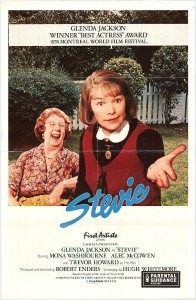
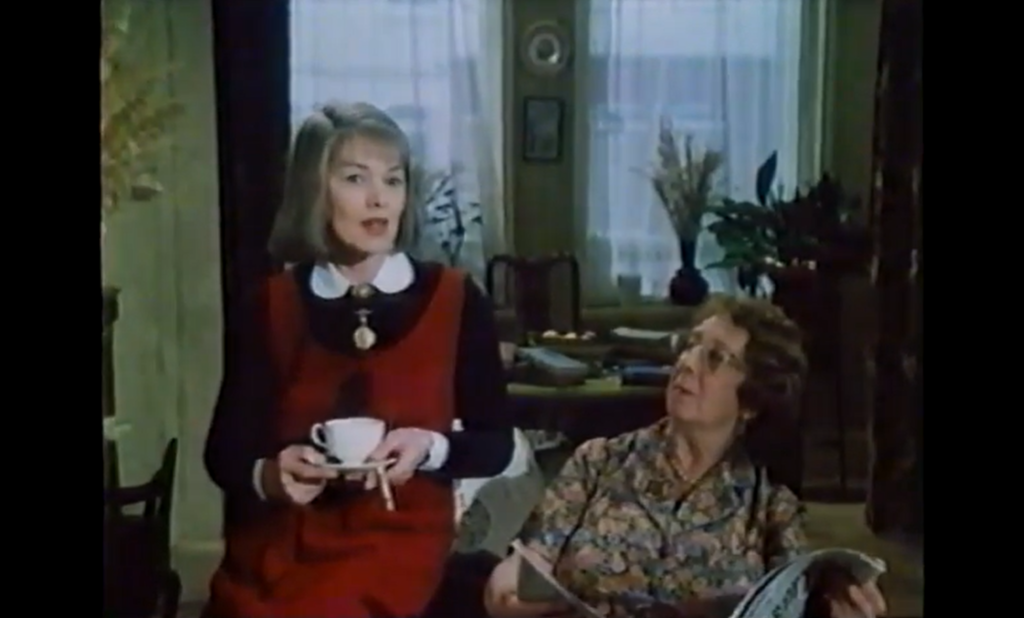
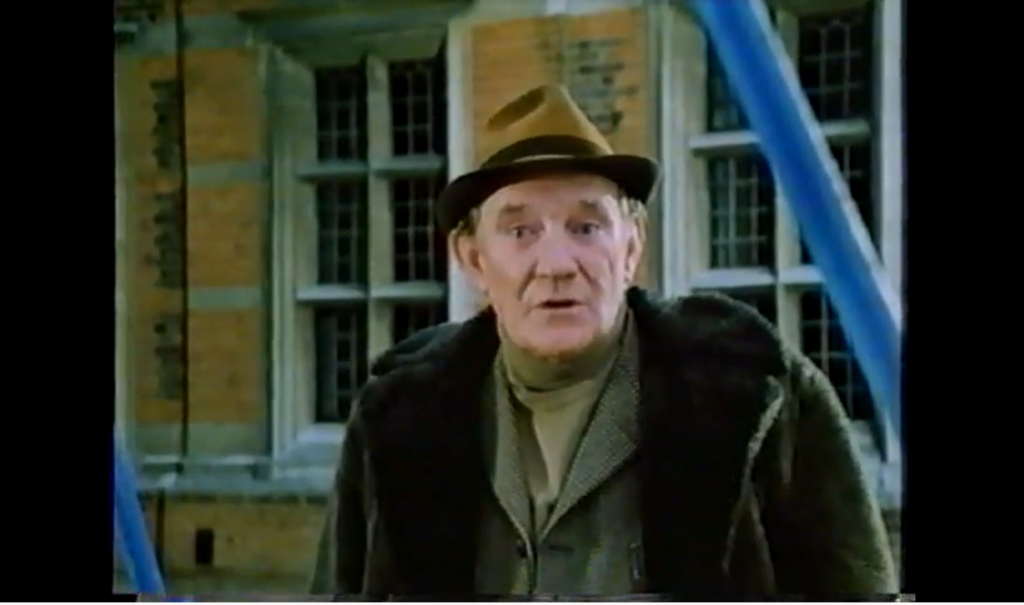
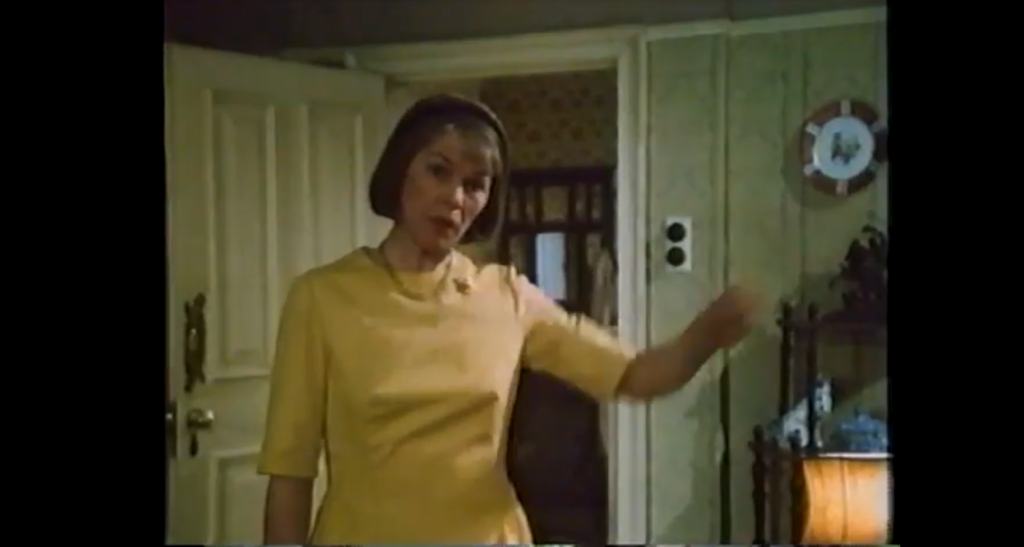
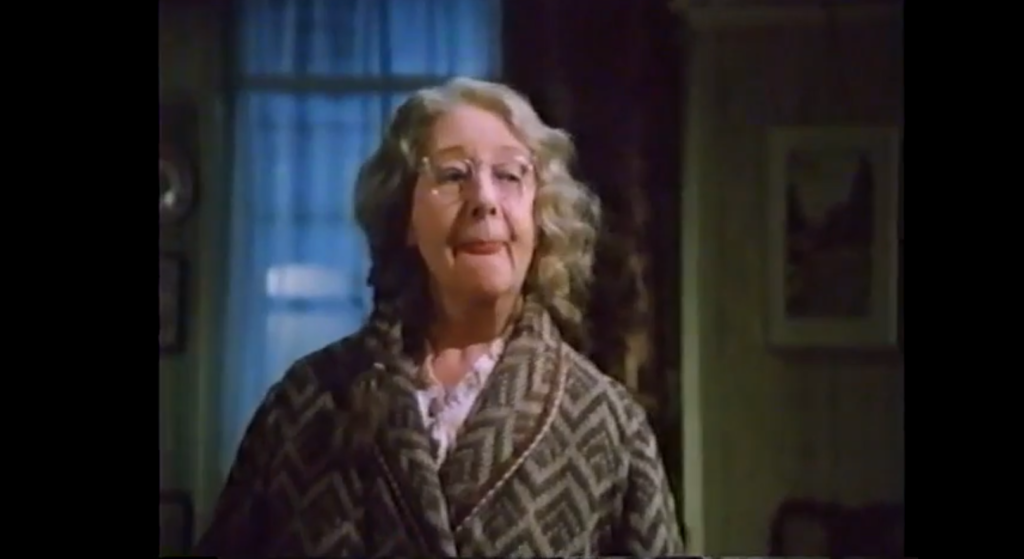
3 thoughts on “Stevie (1978)”
Not a must.
~which is not to knock the performances by Jackson and Washbourne – which are fine as can be, under the circumstances.
The main problem is the circumstances: both actors are trapped in an unremittingly bleak piece which tries the viewer’s patience. Jackson does her best in a highly praised turn, but think about it: if you listen closely to the various things she goes on about as Smith, and if you were instead actually watching Smith, how much time would you really want to spend in her company? There is almost no variance of color here – either in the tenor of the voice or the topics discussed. (Indeed, Smith’s poetry reveals an unhealthy preoccupation with death.)
In a way, it comes as no surprise at one point when we learn Smith attempts suicide by cutting her wrists. However, we learn nothing at all about what brought the act on. We’re to surmise – based on how Smith apparently felt about life in general – that poetry and her aunt (the latter barely) are what kept Smith alive. In mentioning the suicide after the fact, Jackson’s Smith summarily dismisses it by saying she doesn’t want to talk about it, except to say she’s sorry for how the attempt affected those near her.
Insular to an almost-crippling degree, Smith is nevertheless shown to be grateful for kindness – even if she also leans toward taking advantage of it. (We come away with her general doubts and suspicions about the human race – as well as her inability to distinguish between God and organized religion.)
The film can be forgiven its staginess (though, if this were actually performed night after night on a stage, I daresay the two main actors might soon question their sanity). The larger issue is that the film is too long and genuine tedium occasionally takes the reins: i.e., the possibly revealing yet boring exchange between Jackson and Howard in which they discuss whether or not to consider an overnight stay as part of a 100-mile trip.
The only sequence in which there is any real life comes with Alec McCowen. (I’m surprised the assessment doesn’t mention him.) McCowen plays a superficial charmer of a suitor who is nevertheless revealed as something of a dolt. Even if you’re glad that Stevie manages to get away from him, you’re still grateful for the few moments of reprieve their scene offers.
The comparison with the one-woman Woolf piece is apt. (However, Woolf was perhaps a more tortured soul and a better writer.) I don’t mean to sound unsympathetic, but ‘Stevie’ put me more in mind of the one-woman play about Emily Dickinson (‘The Belle of Amherst’) – mainly because I found myself wishing I were keeping company with Julie Harris as the equally alienated yet somehow still light-charged poet.
Peary’s review does actually briefly mention McCowen, in the final line, wherein he writes:
“I was glad that the character didn’t require Jackson to do her snippety, viper-tongued bit, even in the scene (a touching scene, I admit) when she scorns her would-be husband (Alec McCowen).”
I was referring to your review, not Peary’s. As you know, I no longer have a copy of his guide, so I can never actually refer to it.